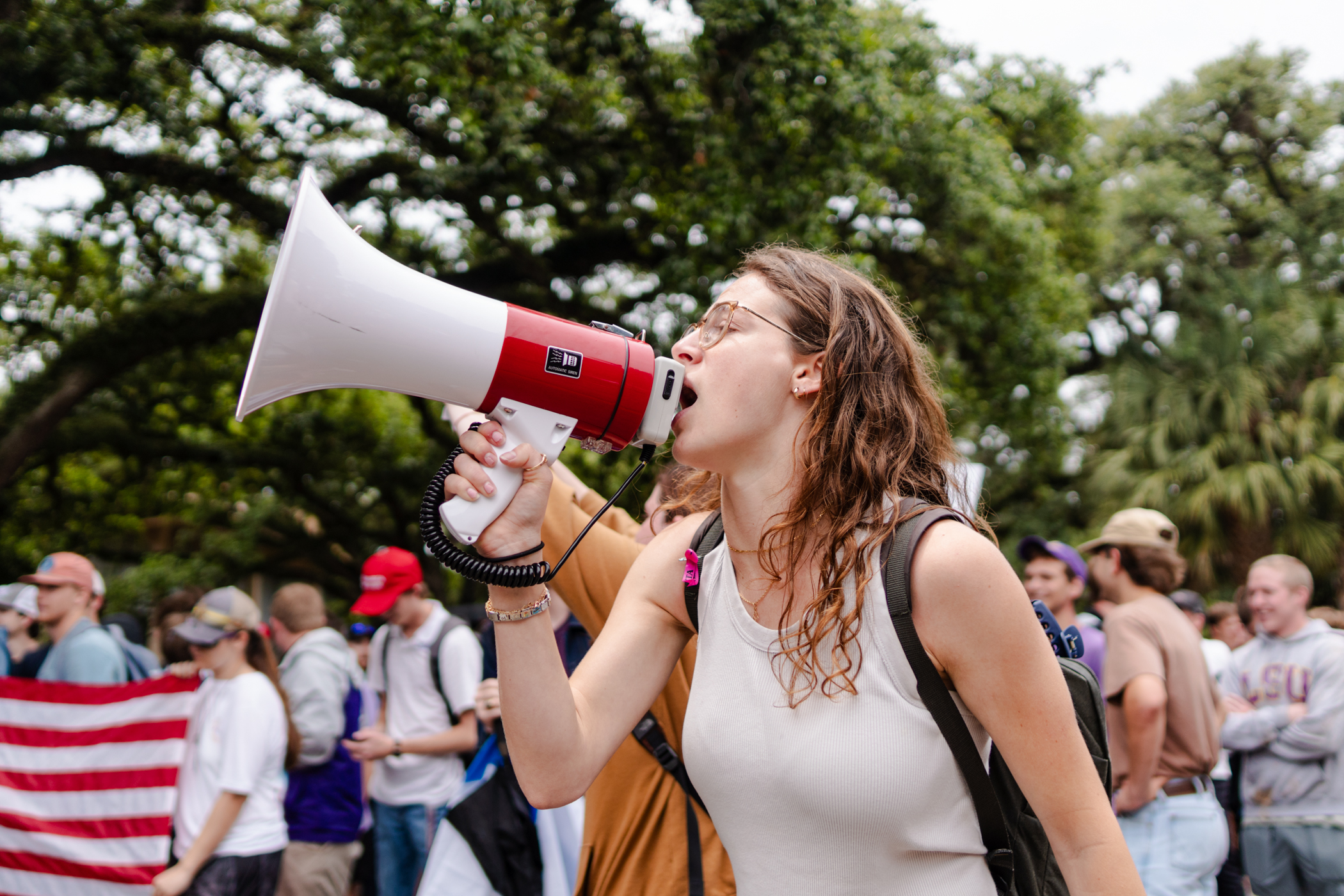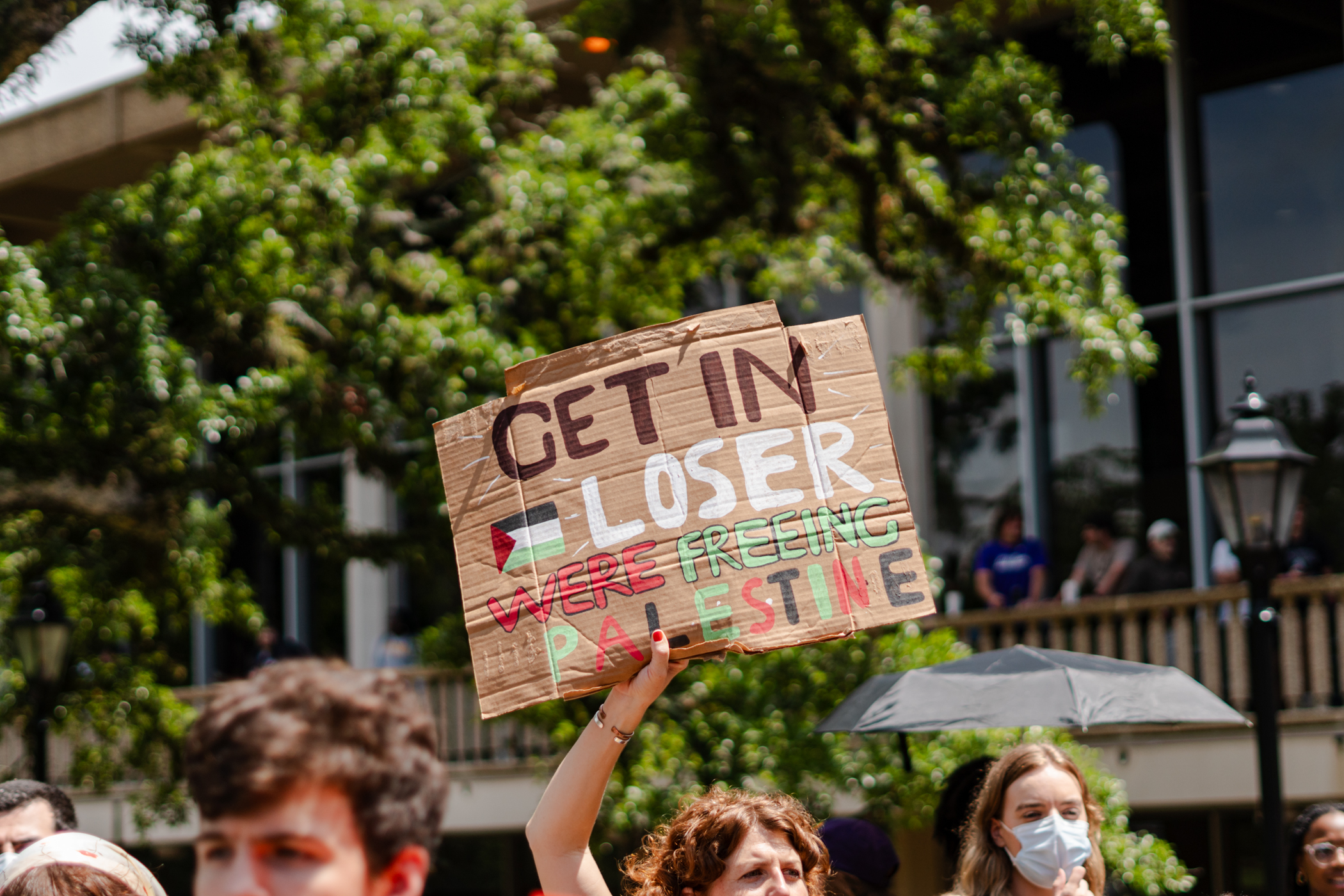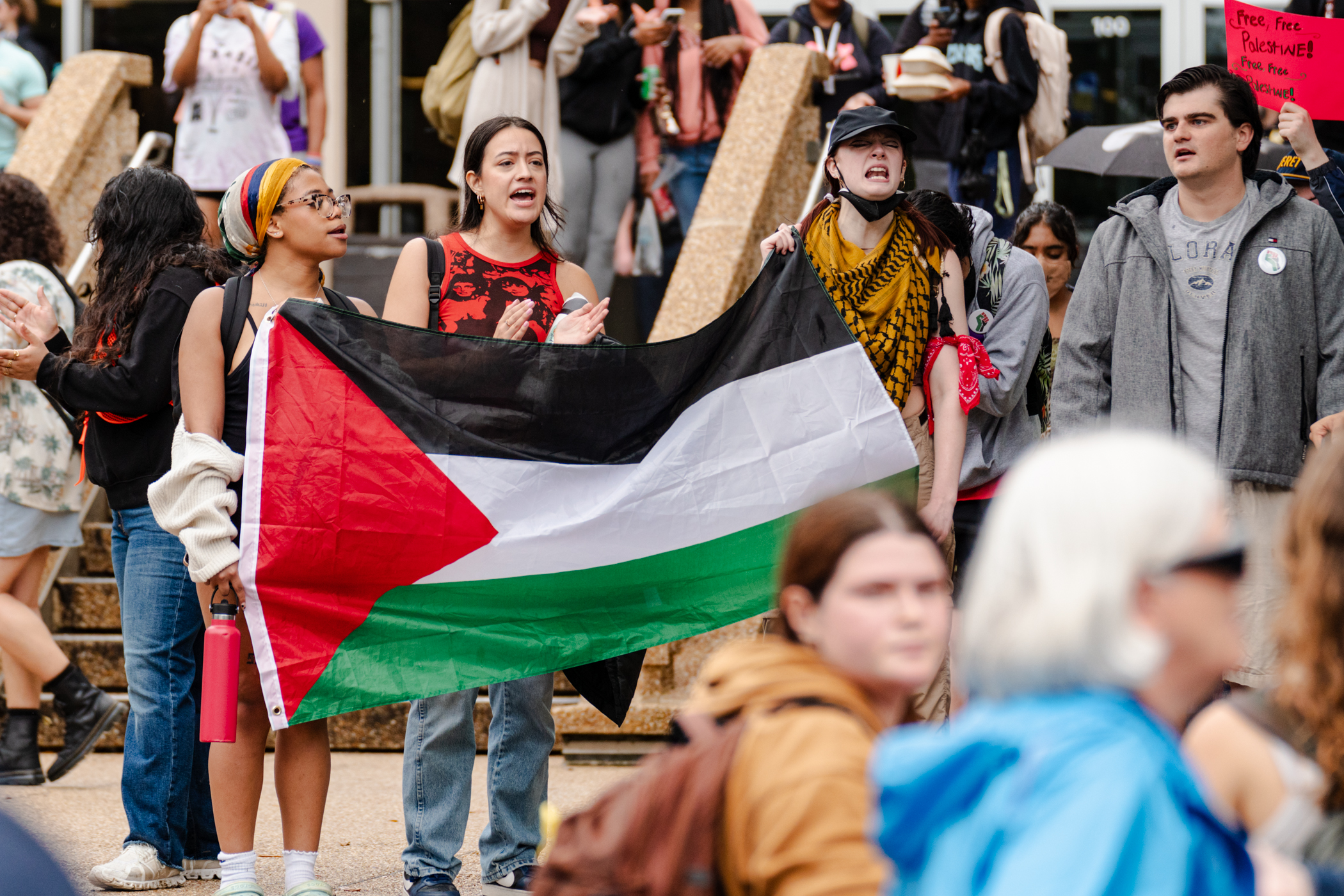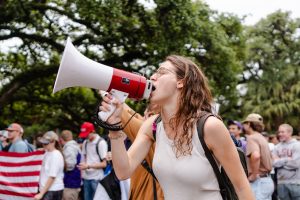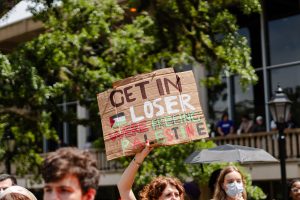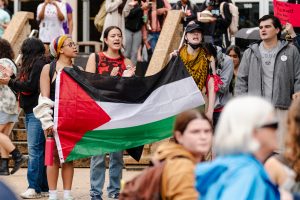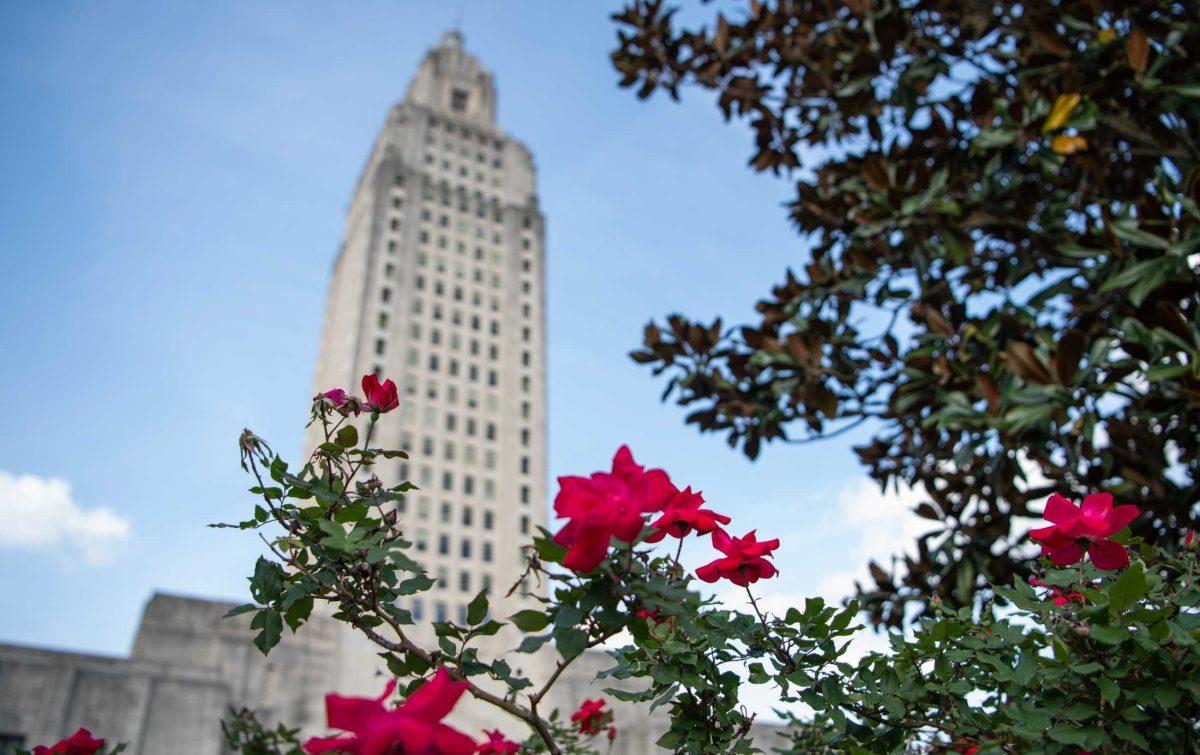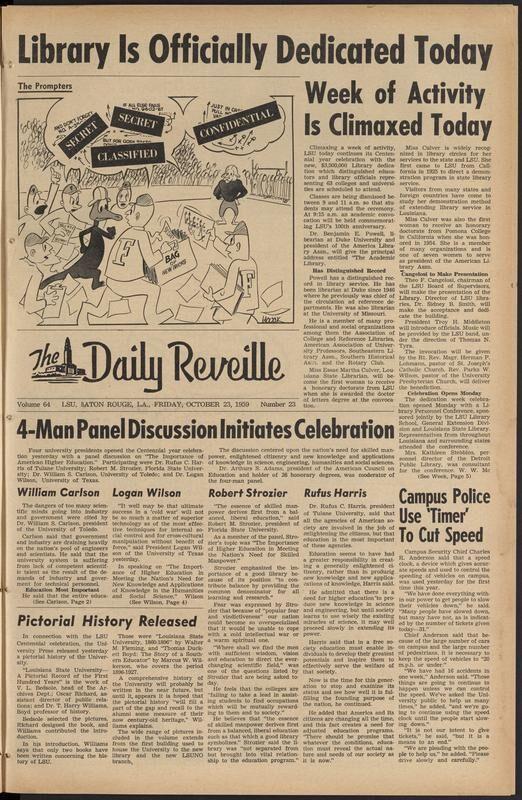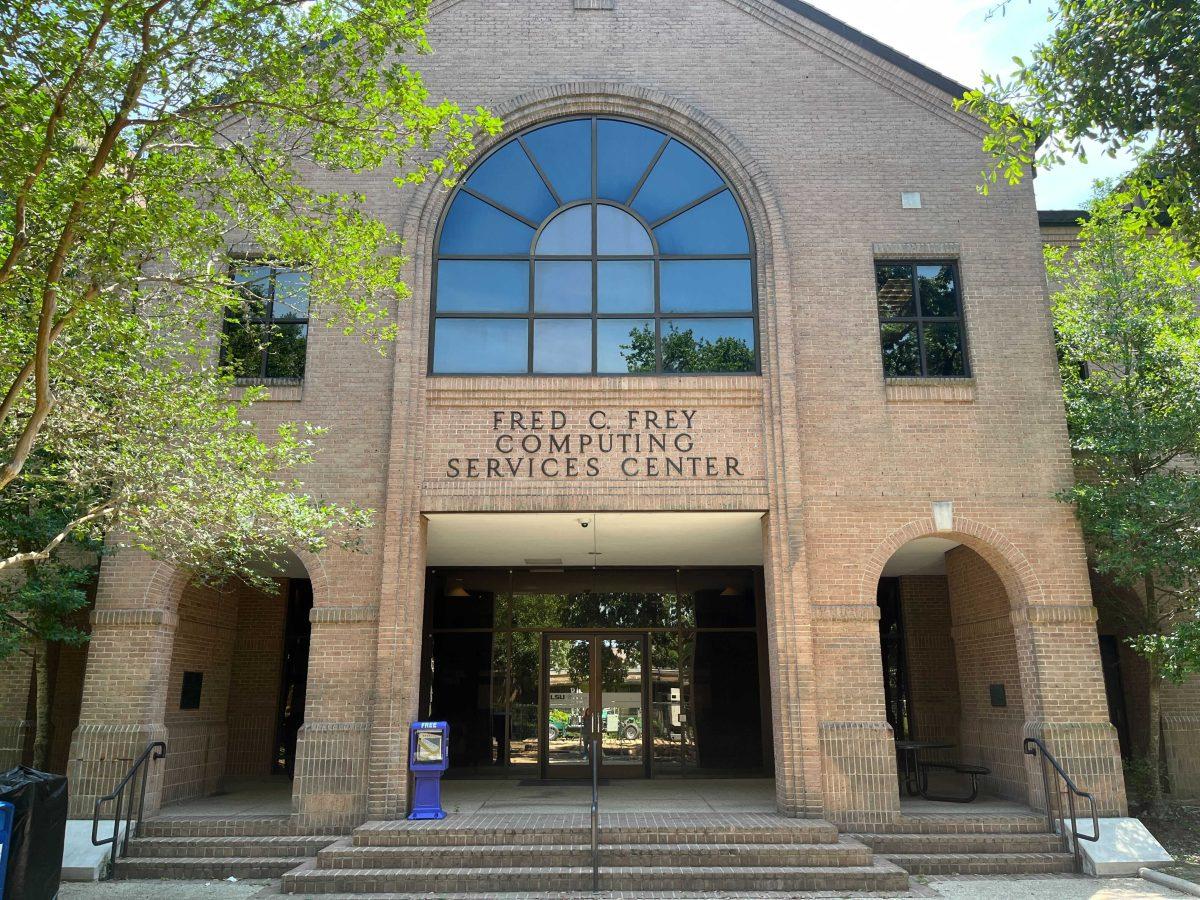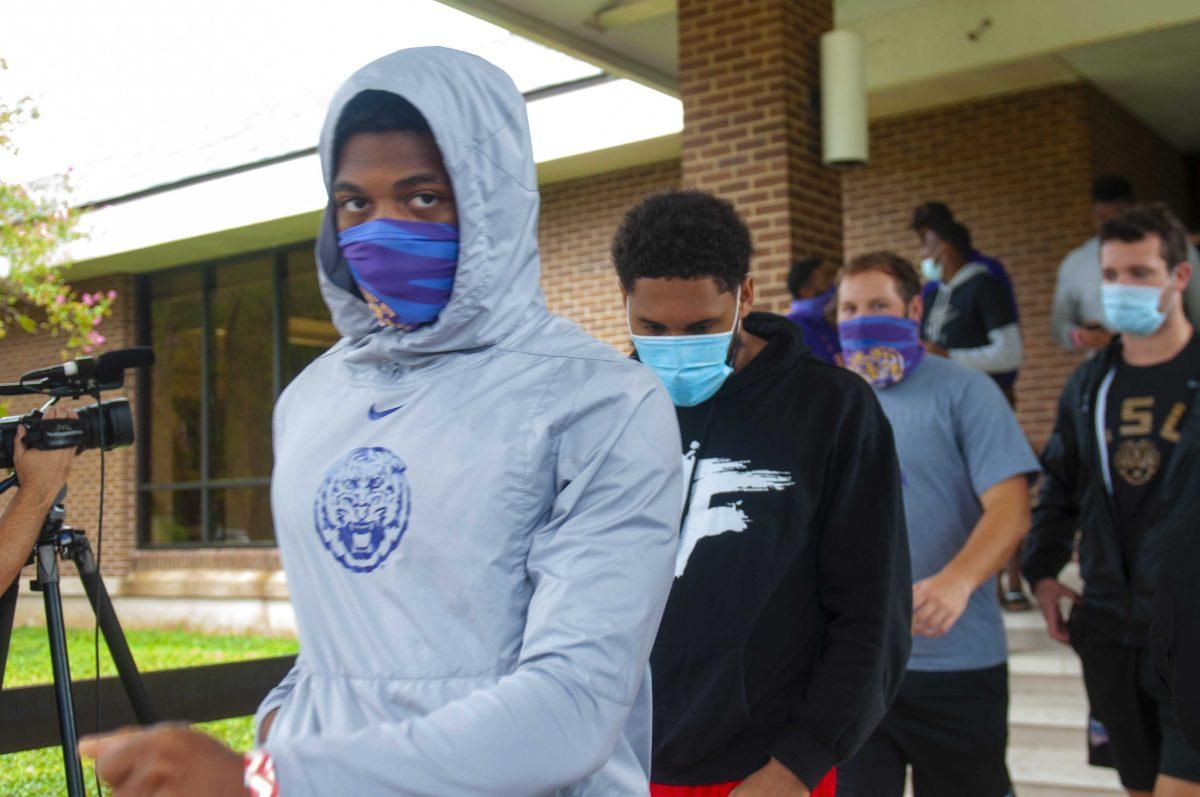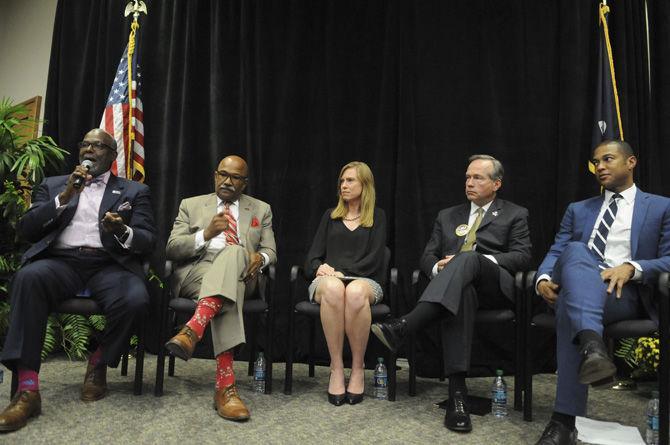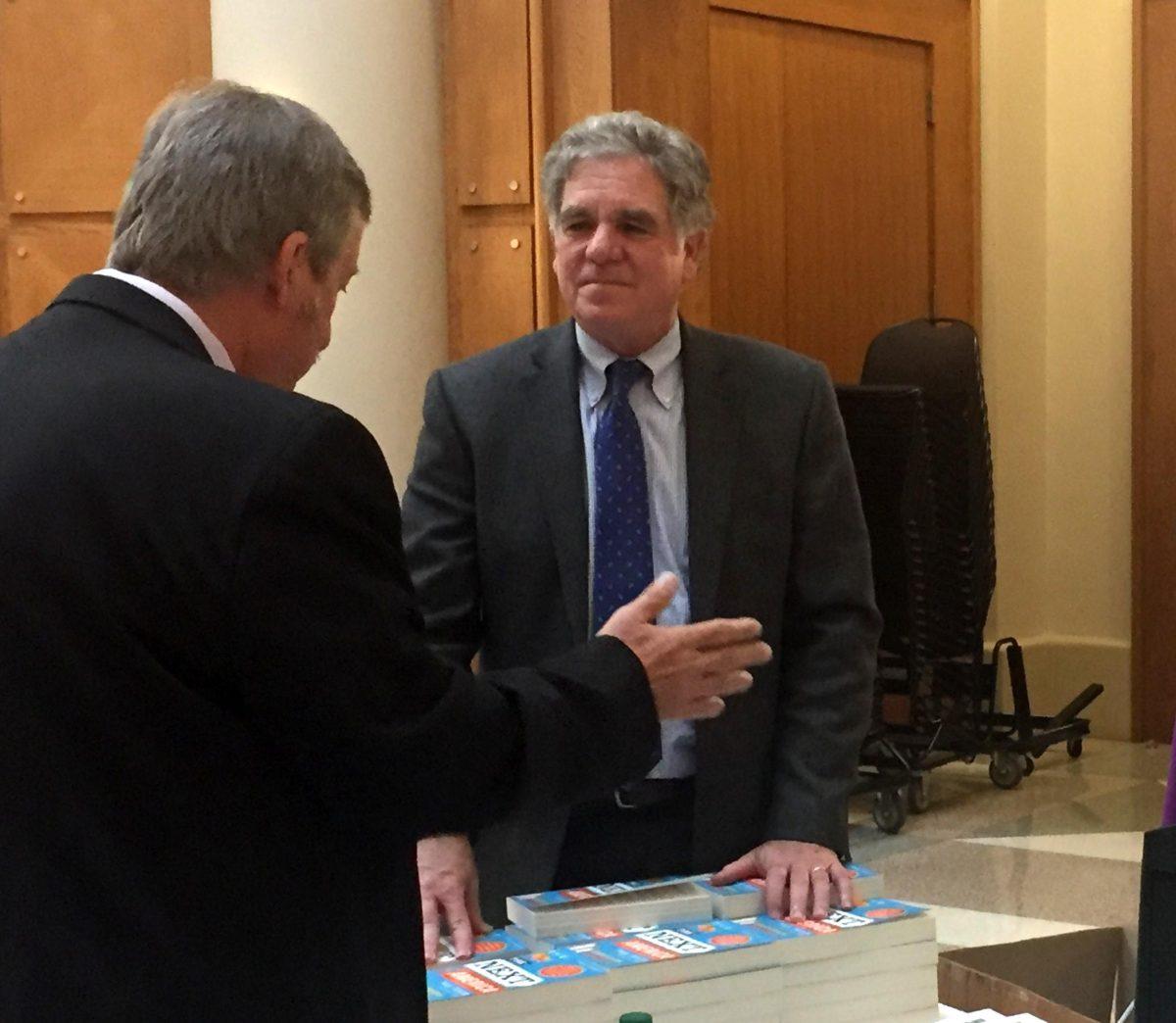Three students protesting the university’s stance regarding the conflict in Israel and Palestine were escorted out of last Tuesday’s Faculty Senate meeting by law enforcement after shouting demands that the university divest support from groups backing Israel.
LSU Police Department officers escorted the students, all belonging to LSU’s chapter of Students for a Democratic Society, out of the senate’s meeting room in the Dalton Woods Auditorium of the Coast and Environment Building. The officers threatened to arrest them if the students returned.
The whole ordeal lasted about five minutes, said the organization’s president Ryan Spalt. He wasn’t surprised by the way things happened. His knowledge of open meeting laws are succinct and his actions deliberate.
Executive members of the Faculty Senate urge that under Louisiana law, the organization’s request for comment did not correspond with the August 27 meeting’s agenda and was thus justly denied. Simply put, they said, the group’s comment was in no way germain to the meeting.
The Students for a Democratic Society understood this, Spalt said, but the organization elected to make its voice heard anyway. They waited in the back of the auditorium until the senate meeting’s chair locked eyes with the students as he motioned to move past the open comment period since there weren’t any officially approved.
On cue, the students approached the front of the room, chanting “Neutrality will never slide, humanity or genocide!”
A few in attendance clapped and cheered. Others grimaced and pointed their fingers for security to act.
Provost Roy Haggerty was among the body of faculty senators. And for roughly one-third of the senators, it was their very first meeting.
The Students for a Democratic Society led a divestment from Israel protest-march that was met with a counter protest-march last spring semester.
The Israel-Palestine conflict has been pushed to the forefront of debate in higher education, often by students wary of their university’s involvement in backing Israeli. To them, U.S. interests support Israeli genocide against Palestinians through monetary channels or research.
Spalt, a biochemistry senior, and the organization were targeting Resolution 24-01, which was both introduced and passed in the same Faculty Senate meeting late last semester. It succeeded with a two-thirds majority and much debate, the meeting’s minutes say.
He believes that the university takes a side favoring Israel’s interests by declaring neutrality. He also doesn’t believe the organization had a fair amount of time to comment on the resolution since it passed in the same meeting it was introduced.
“LSU is having its pockets lined by people from Israeli companies who are participating or upholding genocide,” Spalt said. “Our goal is ultimately to negotiate with faculty for divestment.”
That’s not the way Faculty Senate President Daniel Tirone said the resolution was meant to be read.
“It’s meant to protect the freedom of the faculty and students to engage in scholarship and protect their academic freedom,” he said.
Tirone, a political science professor and the meeting’s chair, said the resolution the students protested is actually more supportive of their cause than they credit. It’s intended to safeguard faculty and student research and interests from any potential political positions taken by university administration. It also entrenches the students’ rights to take their pro-Palestine stance as opposed to having their voice suppressed.
He added that the Faculty Senate might not be a prime target for student protest, since it holds little real influence on the university’s front-facing policy as it pertains to divestment.
READ MORE: LSU students hold ‘Die-in for Gaza’ to encourage LSU, Louisiana to withdraw support of Israel
The students might find more success if they, Tirone said as an example, approached university administration compared to the Faculty Senate. “There is a time, place and manner,” he added.
Vice President of the senate and physics and astronomy professor Parampreet Singh said the decision to deny the students comment was not based on their political views.
“If the other group would’ve come, they would have also been denied public comment,” Singh said. “We have to be fair to everyone and we have to follow the law.”
Allowing just anyone to say whatever they wish would erode the senate’s purpose and mission, Singh said. It would also be legally dubious, he said.
“It’s not that faculty are against students on any issue. We would like to have a healthy discussion on various things,” Singh said. “But it was not the forum for that.”
Spalt said the Students for a Democratic Society wouldn’t be deterred by law enforcement’s threats to arrest them. He said they were asked for their names and IDs but were not detained, so they opted not to share that information.
The organization plans on more displays and events for the coming semester.
The hope, he said, is that through civil disruption, the organization can garner enough support that the university takes their message seriously. Its end goal is LSU officially divesting and increasing transparency, much like other colleges across the country have reacted to student protests.
Singh said all visitors are entitled to public comment at Faculty Senate meetings as long as they meet the requirements, as per state law.
That means comments must pertain to the meeting’s agenda and requests for comment should be made at least one hour before the meeting’s start via email, disclosing their name, the group they represent and their topic of concern. Comments can only be made on items up to a vote.
“Even I was a student a long time ago,” he said, clarifying that his sympathy for the students does not reflect approval of their ideology. “I was young and much more enthusiastic… I understand their pain, but it was disruptive and we have to uphold the law. We have to be fair to everyone.”




